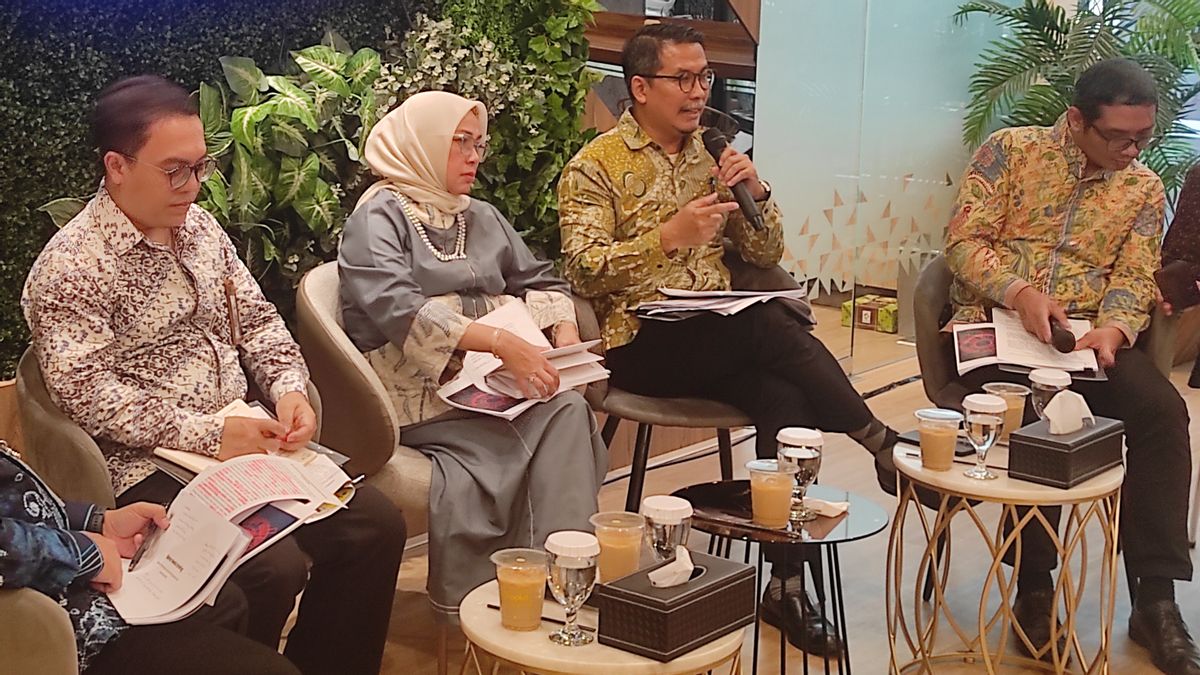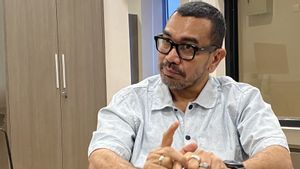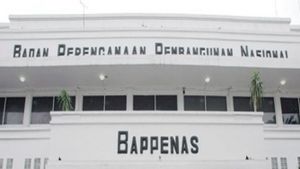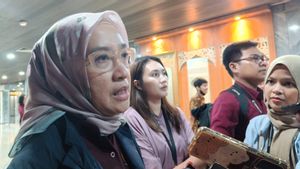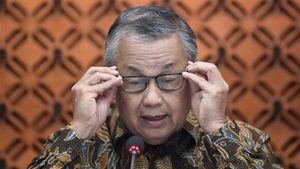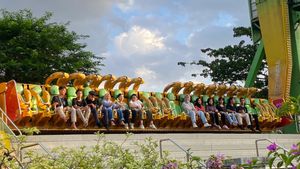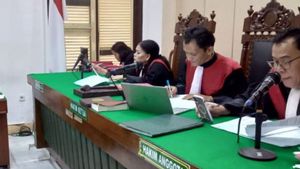JAKARTA - The daily executor (Plh) of Deputy IV of the Coordinating Ministry for Economic Affairs, Musdhalifah Machmud, said that until now there are still many challenges faced by Indonesia when technological developments are increasingly advanced, such as infrastructure and human resources are still an obstacle for micro, small and medium enterprises (MSMEs) so that they can transform digitally or onboard.
Our challenge is of course the same infrastructure. Because our country is an archipelagic country. So that our internet coverage and affordability are indeed limited," he explained in a media briefing on the development of digital economy policies, Wednesday, June 12.
In addition, Musdhalifah explained, the still weak cyber security and security of consumer data, the flood of imported products, and the threat of predatory pricing are also an obstacle for MSMEs to be able to transform digitally.
According to Musdhalifah, the mindset of Indonesians to compete is still very low.
"This pattern of thinking is our mindset that we are aware of the desire to compete in our society, including the low ones. This is especially for MSME players in the regions because we also know very well, for example in the MSME sector, especially food and agriculture, the competitiveness is low," he said.
Musdhalifah explained another obstacle, namely the use of internet services in Indonesia is still widely used for less productive activities
"This challenge causes our digital competitiveness to indeed include the lowest being ranked 51 out of 64 countries, even the lowest being number 3 in Asia," he explained.
Even so, Musdhalifah said that the Government is trying to meet internet needs evenly covering all parts of Indonesia and until now its coverage has reached 78 percent.
"We should be grateful for this achievement, but there are still around 22 percent that we need to fulfill because we can no longer avoid this digital economy," he said.
Musdhalifah said that Indonesia currently has a target to be included in the membership of the Organization for Economic Co-operation and Development (OECD), so it needs an income of around US$ 28,000 to US$ 33,000.
Meanwhile, until now Indonesia has only reached around 4,900 US dollars.
Therefore, Musdhalifah said, to achieve this target, Indonesia must be able to develop its economy, through the use and improvement of the quality of the digital economy.
Furthermore, Musdhalifah said, Indonesia has an internet penetration of 78 percent.
This figure is small because Indonesia is only able to enter seventh place in ASEAN
"As for the speed, it turns out that we are ranked 9th in Asean, still far away, almost the smallest. And this is all homework that we have to develop even faster in the future, hopefully with the programs that we will develop further, we can meet the development targets of the digital economy," he said.
SEE ALSO:
Musdhalifah said, with technological developments that will accelerate, it is estimated that around 80 million jobs will be lost, but it will also increase by around 67 million types of jobs that require new capabilities and skill transformation.
"With digital technology and utilization, we really need this expertise in this future, which we must accelerate," he said.
Meanwhile, in 2030 GMV, Indonesia's internet economy is predicted to reach 360 billion US dollars.
Then from various kinds of digital economies that develop in Indonesia, e-commerce is expected to continue to grow.
The English, Chinese, Japanese, Arabic, and French versions are automatically generated by the AI. So there may still be inaccuracies in translating, please always see Indonesian as our main language. (system supported by DigitalSiber.id)
